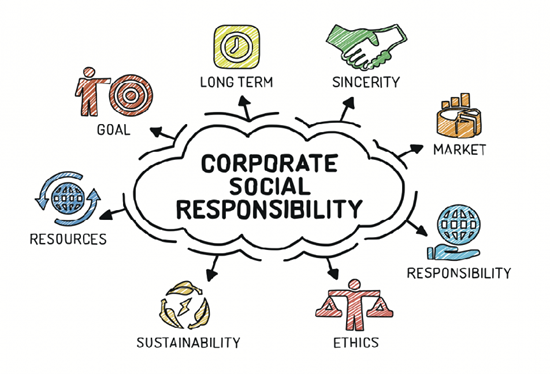How Being More Charitable Can Enhance Customer Loyalty, Sales, and the Brand

We all have a sense of the social importance of a company’s support of non-profits or charities―the ethical importance of social responsibility. Philanthropy of any kind is not only the “right thing to do” but also―done right―can add to your brand’s standing among its customers, strengthen the company culture, and help attract the right employees.
But how important is it and how do we connect with the right charity? Is it even affordable? What should our real motivation be?
The saying “charity begins at home” is also relevant because the first cause to support must be to make sure the company is viable enough for increased hiring. After all, giving people jobs is a very good thing!
Why a Socially Responsible Culture Can Matter
Social responsibility is becoming an increasingly important aspect of the company culture and brand both for hiring and business building, and Millennials (roughly between 16 and 36 years old) are driving that trend (all 92 million of them!). Their desire for authenticity, transparency, and meaning play a part (see my “Why―and How―Marketers and Operators Should Embrace Millennial Marketing” blog post.) along with their generally risk-averse nature.
Millennials tend to be “pro-social” with a concern for ethical standards and a preference for sustainable manufacturing and production methods. According to a 2015 Nielsen global report, 66% of those surveyed said they would spend more on socially conscious, sustainable brands while the Millennial’s number is roughly 10% higher at 73%. An even larger 81% want to support companies and brands demonstrating good corporate citizenship (Forbes: “Millennials Driving Brands to Practice Socially Responsible Marketing”).
That’s the brand loyalty, customer engagement, and sales building side of things. In terms of their job searches, two-thirds of Millennials want to work for a charity supportive company versus 59% in the 35-44 age group and an even lower 45% for 45- to 64-year-olds (Fortune: “New Poll Shows Millennials Prefer Companies that Give to Charity”).
Companies like Goldman Sachs emphasize their philanthropy during the recruiting process and open up volunteer opportunities with engagements like helping entrepreneurs get started along the right path, which is totally appropriate to their culture and values.
Five Steps to a Meaningful and Effective Charitable Relationship
Giving and donating can be one approach to philanthropy, but it may not create the  authentic connection that matters to employees and customers. For example, the pharmaceutical firm Gilead topped Fortune’s list of the most generous companies but scored a “D” on a consumer-based brand index while the next four highest spenders in the ranking had brand index scores ranging from an “A-” to a “C+.”
authentic connection that matters to employees and customers. For example, the pharmaceutical firm Gilead topped Fortune’s list of the most generous companies but scored a “D” on a consumer-based brand index while the next four highest spenders in the ranking had brand index scores ranging from an “A-” to a “C+.”
The following five suggestions can help guide your brand to a more meaningful and impactful effort:
- Make sure your charitable effort relates directly to the brand’s values and is something to which your employees can relate. For restaurants, it may be support of local farm, sustainability, organic, or healthfully focused organizations. Or it could be a cause that is inherently a part of the company’s values and legacy (and not something that just happens to be important to the CEO!).
- Target efforts on a single or very limited number of key opportunities. Trying to support too many causes, no matter how noble in concept, simply dilutes the impact you will have on any given cause and the impact on and visibility to your customer base. You want to do good, but you should also want the brand and your teams to enjoy their well-earned credit.
- Find a charity or cause you can work closely with and will work closely with you. The ideal would be a relationship with which each partner can bring their specific expertise to the program, from the strategic and tactical to the creative. Building on programs that directly involve your people is a great way to send the authenticity of your message to your employees and customers.
- Base your co-marketing efforts on goals that matter to both your company and the cause being supported. This may sound simple and basic, but it is often overlooked in the excitement of building the relationship.
- Look for ways to extend and stretch the execution. Don’t forget localization, social media, employee volunteer time, conferences, webinars, websites, and much more.
Making it big will benefit everyone!
Philanthropy and supporting good causes can not only “do good,” but they can also become vital to the company’s brand positioning by helping the company to be more relevant to customers who are searching for engagement through meaning.
Suggested Related Articles
- How Cause Marketing Can Make a Difference
- Five Brands that Have Mastered the Mobile Experience
- In Support of Digital Marketing for a Cause
- Five Considerations When Engaging with a Charity
- Cause Marketing Matures into Meaningful Marketing